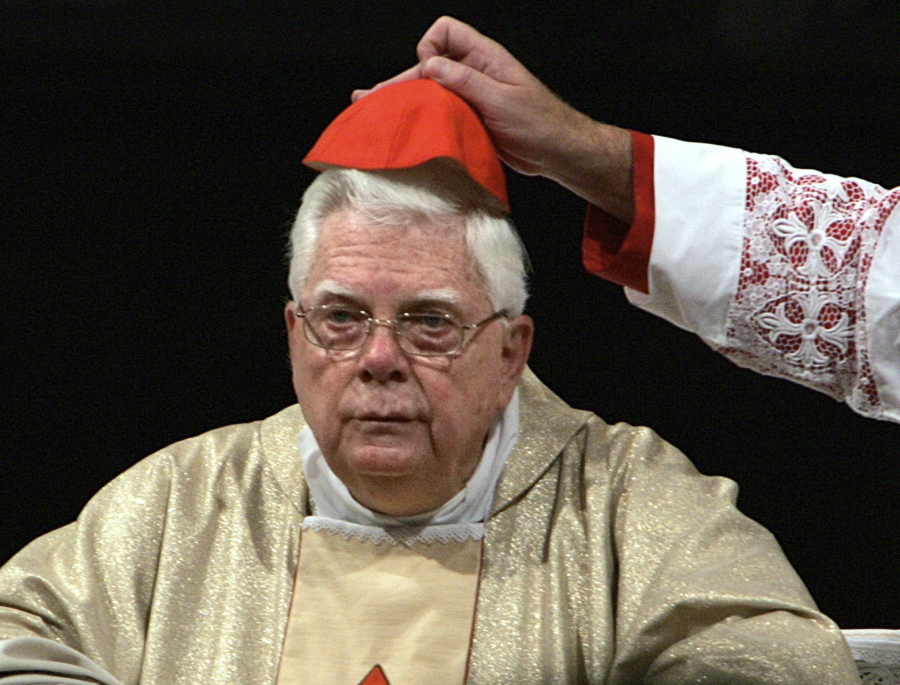VATICAN CITY — Cardinal Bernard Law, the disgraced former archbishop of Boston whose failures to stop child molesters in the priesthood sparked what would become the worst crisis in American Catholicism, died early Wednesday, the Vatican said. He was 86.
Law had been sick and was recently hospitalized in Rome.
Law was once one of the most important leaders in the U.S. church. He broadly influenced Vatican appointments to American dioceses, helped set priorities for the nation’s bishops and was favored by Pope John Paul II.
But in January 2002, The Boston Globe began a series of reports that used church records to reveal that Law had transferred abusive clergy among parish assignments for years without alerting parents or police. Within months, Catholics around the country demanded to know whether their bishops had done the same.
Law tried to manage the mushrooming scandal in his own archdiocese by first refusing to comment, then apologizing and promising reform. But thousands more church records were released describing new cases of how Law and others expressed more care for accused priests than for victims. Amid a groundswell against the cardinal, including rare public rebukes from some of his own priests, Law asked to resign and the pope said yes.



